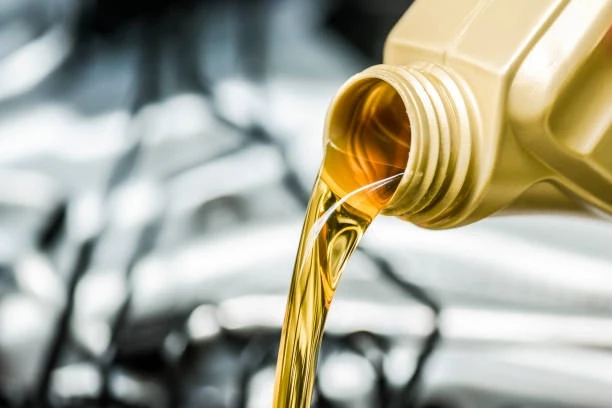When it comes to gear oils, determining the right viscosity rating can be challenging. There are various options in the market, and choosing the right one can significantly impact vehicle performance. Have you ever been confused about which gear oil is thicker, 80w-90 or 85w-140? If yes, then you're in the right place. In this blog post, we'll provide a thorough technical analysis of the thickness of these two gear oils.
We'll explore the viscosity ratings and help you understand their differences. Moreover, we'll delve into the impact of viscosity on vehicle performance and determine which gear oil rating is better suited for your needs. If you're seeking comprehensive information about gear oil, be sure to check out the details provided at Mr Oil Guy website.
Understanding Gear Oil Viscosity Ratings
If you want to understand gear oil viscosity ratings, you should know how they affect the performance of your vehicle's gears. Gear oil viscosity ratings measure the oil's resistance to flow under specific temperature conditions.
The viscosity rating is represented by numbers, such as 80W-90 or 85W-140. The first number, such as 80W or 85W, indicates the oil's viscosity at low temperatures, specifically at winter conditions. The letter 'W' stands for winter. The lower the number, the thinner the oil will be at low temperatures. Thinner oil allows for easier starting and smoother shifting during cold weather.
The second number, such as 90 or 140, represents the oil's viscosity at high temperatures, typically at engine operating temperatures. Higher numbers indicate thicker oil, which provides better protection against wear and heat. Thicker oil is generally recommended for high-load or heavy-duty applications, where gears are subjected to extreme pressures and temperatures.
Exploring the Differences Between 80w-90 and 85w-140
You should know that there are some key differences between 80W-90 and 85W-140 gear oil. Understanding these differences is crucial for choosing the right gear oil for your vehicle. Here are the key points to consider:
Viscosity: The first difference lies in the viscosity ratings. The numbers before the 'W' represent the oil's viscosity at colder temperatures, while the numbers after the 'W' represent the viscosity at higher temperatures. In this case, 80W-90 gear oil is thinner at colder temperatures compared to 85W-140 gear oil. The 'W' stands for winter, indicating the oil's capability to flow in cold weather conditions.Protection: The higher viscosity rating of 85W-140 gear oil provides better protection for heavy-duty applications and extreme conditions. It can withstand higher temperatures and pressures, making it ideal for heavy loads, towing, and off-road driving. On the other hand, 80W-90 gear oil is suitable for lighter-duty applications and normal driving conditions.Fuel Efficiency: Due to its higher viscosity, 85W-140 gear oil may cause increased drag, leading to slightly reduced fuel efficiency. In contrast, 80W-90 gear oil offers better fuel efficiency due to its lower viscosity.The Impact of Viscosity on Vehicle Performance
When it comes to vehicle performance, the viscosity of gear oil plays a significant role in determining how well your vehicle functions. Viscosity refers to the oil's resistance to flow, and it's crucial to find the right viscosity for your vehicle's specific needs. The impact of viscosity on vehicle performance can be seen in several aspects.
Firstly, the viscosity of gear oil affects the efficiency of the transmission system. If the oil is too thick, it can create resistance and cause the transmission to work harder, decreasing performance and fuel efficiency. On the other hand, if the oil is too thin, it may not provide sufficient lubrication, resulting in increased friction and wear on the gears.
Secondly, gear oil's viscosity also influences the transmission system's temperature regulation. High viscosity oils retain heat, leading to overheating and damage to the transmission components. On the contrary, low viscosity oils may not adequately dissipate heat, causing the transmission to operate at higher temperatures, leading to premature wear and failure.
Lastly, the viscosity of gear oil affects the overall smoothness of gear shifting. The right viscosity helps to ensure smooth and precise gear changes, improving the driving experience and reducing wear on the transmission.
Comparing the Thickness of 80w-90 and 85w-140 Gear Oils
To accurately compare the thickness of 80w-90 and 85w-140 gear oils, you need to understand their viscosities and how they differ. Viscosity is a measure of a fluid's resistance to flow, and it plays a crucial role in determining the thickness of gear oils.
Here are three key points to help you understand the differences between these two gear oils:
Viscosity Grades: The numbers in 80w-90 and 85w-140 refer to the viscosity grades of the gear oils. The 'w' represents winter, indicating the oil's viscosity at low temperatures. The lower the number before the 'w,' the thinner the oil will be in cold weather. Therefore, 80w-90 is thinner than 85w-140 at low temperatures.Operating Temperature Range: The second number in the viscosity grade represents the oil's viscosity at high temperatures. In this case, 90 and 140 denote the oils' viscosities at 100 degrees Celsius. The higher the number, the thicker the oil will be at high temperatures. Consequently, 85w-140 is thicker than 80w-90 in hot conditions.Application Specifics: The choice between 80w-90 and 85w-140 depends on the vehicle's requirements and operating conditions. 80w-90 is commonly used in vehicles with moderate loads and temperatures, while 85w-140 is suitable for heavy-duty applications and extreme temperatures.Choosing the Right Gear Oil for Your Vehicle
Selecting the appropriate gear oil for your vehicle requires careful consideration of its specifications and operating conditions. Gear oils are crucial in ensuring smooth and efficient performance of the transmission, differential, and other gear components. To choose the right gear oil, you need to understand the viscosity rating, additives, and specifications recommended by the vehicle manufacturer.
The viscosity rating, such as 80W-90 or 85W-140, indicates the oil's ability to flow at different temperatures. The 'W' represents winter, and the number before it represents the oil's viscosity at low temperatures. The second number denotes the oil's viscosity at high temperatures. Thinner oils work better in colder climates, like 80W-90, than thicker ones in hotter climates.
It is important to consult your vehicle's manual or contact the manufacturer to determine the correct viscosity and any specific requirements for your vehicle. Additionally, considering the conditions, like towing heavy loads or extreme temperatures, can help you pick gear oil with the right additives. These additives enhance the oil's performance, providing better protection against wear, heat, corrosion, and foaming.
Conclusion
As drivers, we rely on our vehicles to perform to the best of their abilities. But have you ever stopped to consider what goes on under the hood? Gear oils play an important role in ensuring that your vehicle's gears work smoothly and efficiently. When it comes to choosing the right gear oil, viscosity rating is what you should pay attention to. A higher viscosity rating like 85w-140 means that the oil is thicker and can offer more protection.
However, it's important to note that different vehicles have different requirements. By considering your vehicle's specific needs, you can ensure that your gears are receiving the optimal performance and protection they need. So, don't overlook the importance of gear oil when it comes to maintaining your vehicle.


